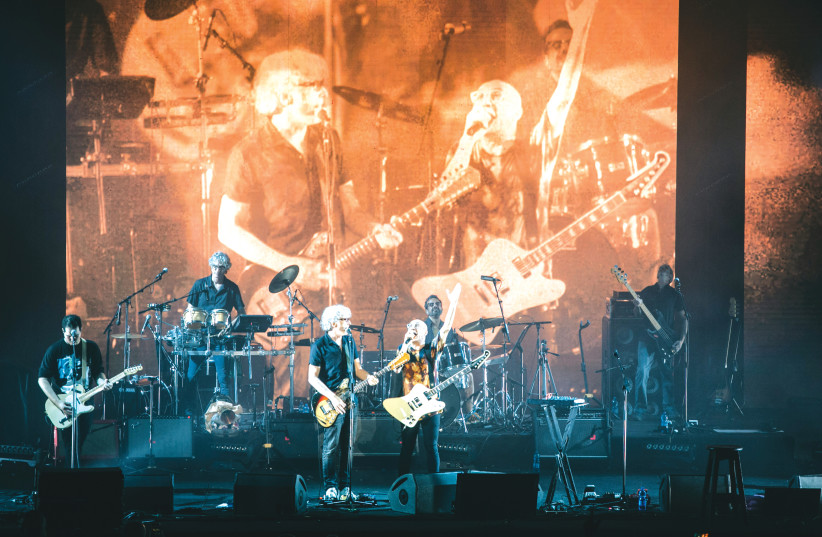Israeli rock icon and singer-songwriter Rami Fortis is set to celebrate the 46th anniversary of his debut album Plonter with a new run of shows.
In the 1970s, Fortis emerged as a revolutionary force, pioneering a new wave of rock music that would redefine the Israeli cultural identity. His upbringing, marked by a sense of rebellion and non-conformity, would manifest in his music.
Fortis was immersed in creativity from a young age, his passion for music ignited by the sounds of the era’s countercultural icons.
He began playing music in his teenage years, teaching himself to play the guitar and starting his musical career professionally as a lighting man for the rock band Tamouz in 1975. Gradually, Fortis incorporated his singing into their sets. By the late 1970s, he had firmly established himself as a dynamic performer in the Tel Aviv rock scene, known for his electrifying stage presence and innovative sound.

In 1978, Fortis made his indelible mark on the local music world with the release of his debut album, Plonter, a seminal work that slowly propelled him to fame.
Authentic and rebellious music
The lead-up to this milestone was marked by anticipation and excitement as Fortis teased audiences with glimpses of his raw talent and infectious energy. Drawing from a diverse range of influences, from punk to glam rock and blues, his music resonated with a generation hungry for authenticity and rebellion. The album’s raw energy and unconventional sound challenged traditional notions of Israeli popular music and pushed the boundaries of what was considered acceptable by the mainstream.
With his distinctive vocals and provocative lyrics, Fortis captured the zeitgeist of the era, channeling the restless spirit of youth into anthems of defiance and liberation. The record was not merely a collection of songs; it was a manifesto, a rallying cry for a generation on the cusp of change. Despite its initial commercial failure, the album slowly began to gain a cult following and is regarded today as a staple of Israeli rock, influencing subsequent generations of musicians who drew inspiration from Fortis’ pioneering work.
As the album hit the airwaves, it ignited a cultural revolution, inspiring legions of fans and ushering in a new era in Israeli music. Unlike his subsequent albums, which often showcased a more polished and refined production, Plonter maintains a gritty and lo-fi aesthetic, capturing the urgency and spontaneity of the burgeoning Israeli punk scene of the late 1970s.
Its lyrics, filled with themes of rebellion and disillusionment, still resonate with a sense of youthful defiance that is distinct from the more introspective and mature tone found in Fortis’s later releases.
Plonter’s raw energy and fearless spirit continue to inspire musicians, transcending generations. With each chord, Fortis’s rebellious anthem echoes through time, reminding us of the power of music to defy norms and ignite change, ensuring his place as a true icon of Israeli rock. While Fortis has gotten older, he still embodies that youthful energy that he showed us 46 years ago.
The run of shows will begin in late March.
